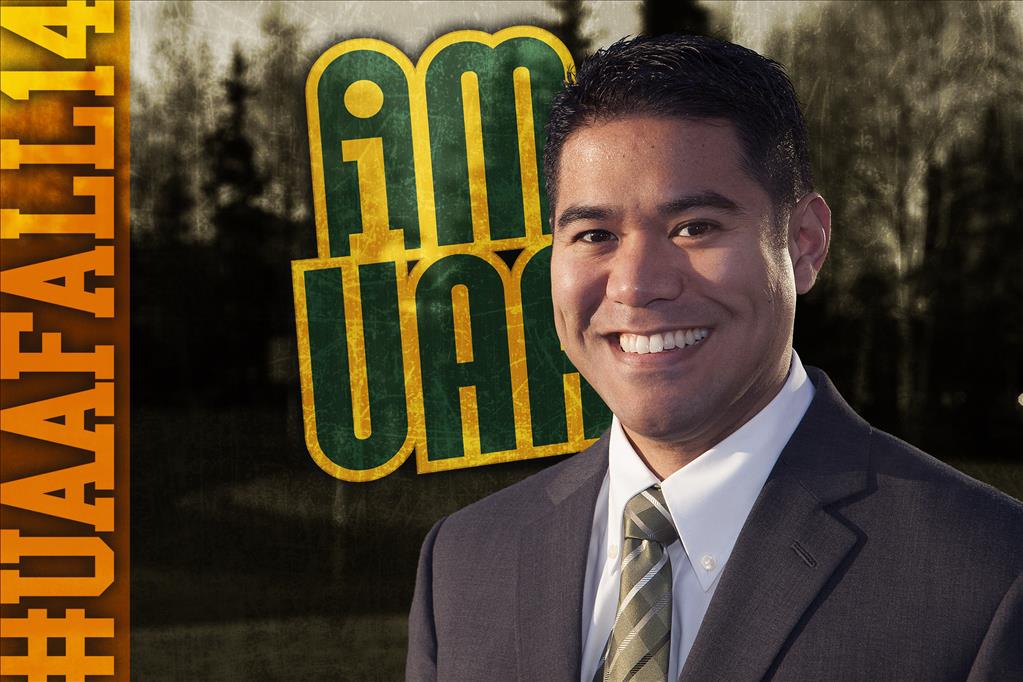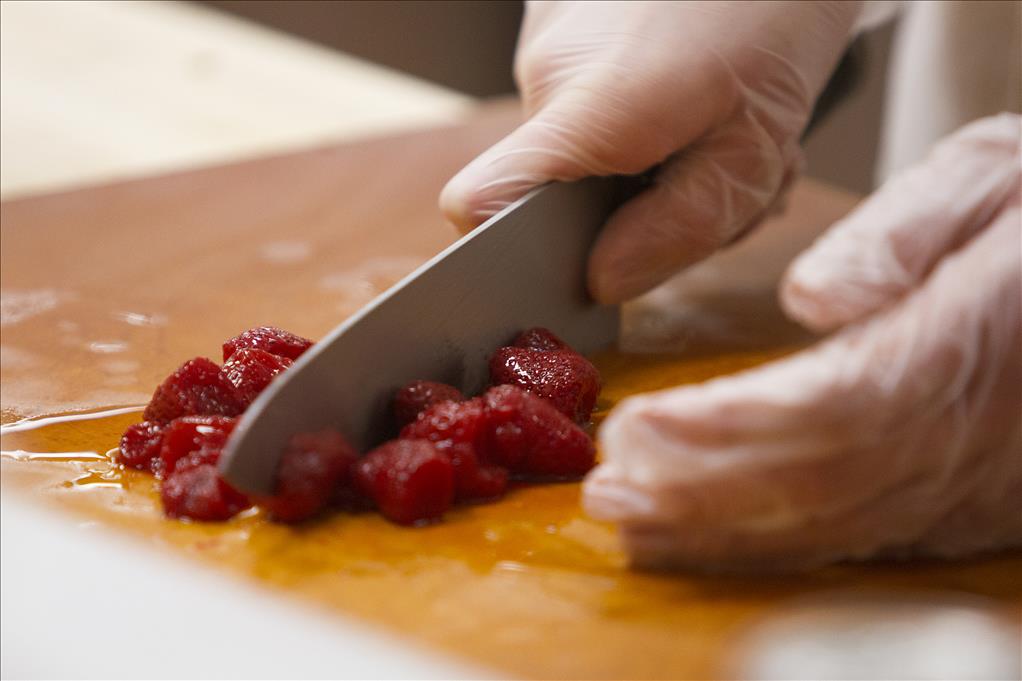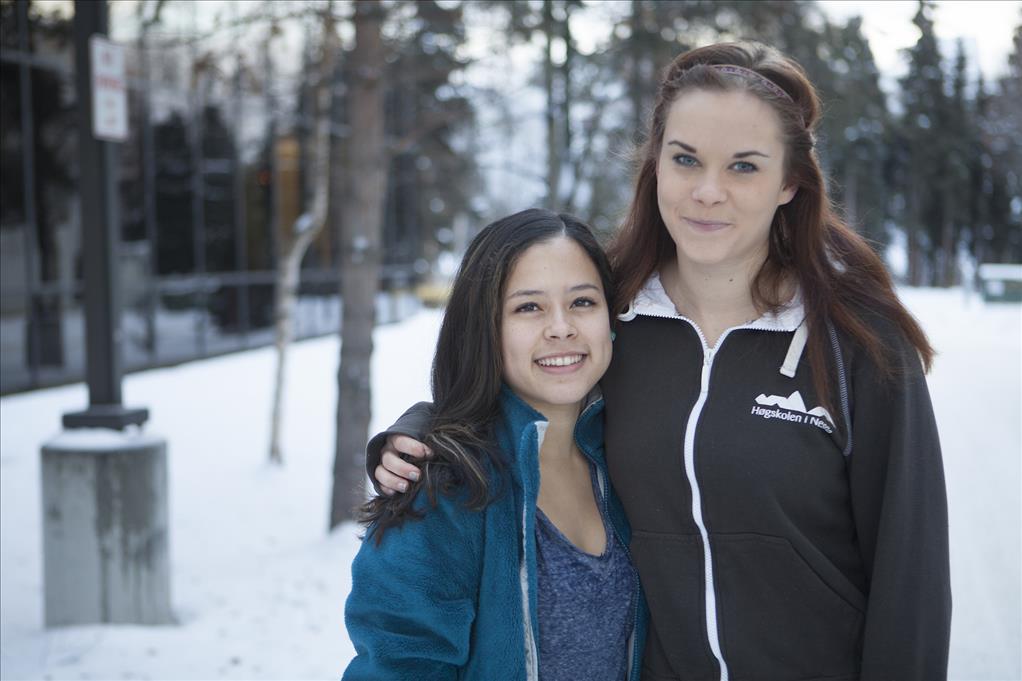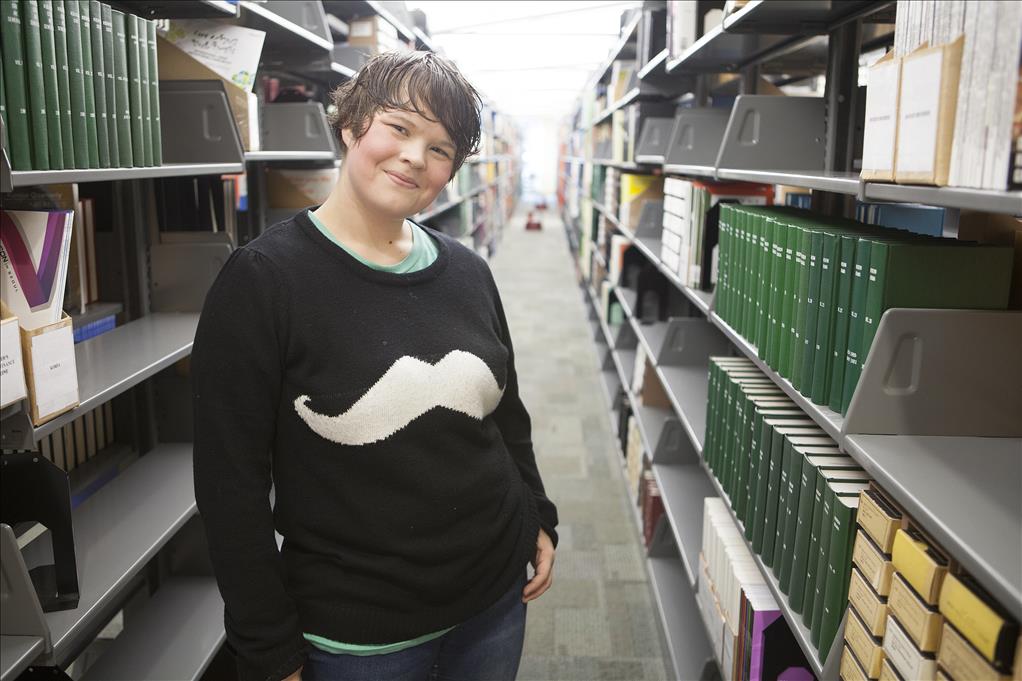Alaska Native culture, Confucianism: Tend to your relationships
by Kathleen McCoy |
WWCD?
That's my shallow adaptation of WWJD, the acronym for "What Would Jesus Do?" that swept popular culture in the 1990s as a kind of anthem for Evangelical Christians.
It's adapted here as "What Would Confucius Do?" to set up this surprise: Alaska Native students know the answer. Confucius would do exactly what their Alaska Native elders and their elders' elders have told them to do. In short, survival depends on family and family depends on relationships; tend to your relationships.
A connection between the ethical and philosophical system of Confucianism and Alaska Native values began to emerge about three years ago, the outgrowth of a project UAA philosophy professor Kristin Helweg Hanson and Sheila Randazzo, a transition advisor for Native Student Services, worked on together. They studied spiritual values in Alaska Native games, the community events that highlight ancient skills necessary for hunting and honor the communal value of bringing food home to the village.
Randazzo, herself an athlete, explained that in Alaska Native games, the individual sports star doesn't exist. "You never talk about the athlete; you talk about the person, the family and the community."
What Hanson heard were echoes of the Chinese scholar, Tu Weiming, explaining the Confucian self as deeply embedded in relationships. In Confucianism, she explained, "you are not just a person, you are a person in relationships, " with family, community, ancestors, nation and cosmos.
But that was that, Hanson thought, an interesting intellectual tidbit to excite a scholar. What happened next came as a total surprise.
In the middle of teaching an Enduring Philosophers class on Confucius, students she didn't know or realize were Alaska Native began to respond in ways she didn't anticipate. They began writing papers pointing out validations in Confucianism for their own Alaska Native ways of being.

Autumn Ridley of Anchorage Team A makes her world record kick of 82 inches in the Alaskan High Kick event during the 2012 NYO games Alaska.
Recently, they presented their work publicly at a campus bookstore event.
Josephine "Mussy" Hishon will graduate in May with a history degree. Self-described as "half Yup'ik and half kass'aq," she was raised in Tuntutuliak and Bethel. At UAA she became intrigued by Asian Studies and sought out talks by visiting scholars. One described how certain terms for family members actually define their role in the family. What she heard resonated.
"I am familiar with naming systems," she said. "On my dad's side, we have certain names for the family and we treat those cousins a certain way; same thing on your mom's side. You grow up knowing who you can tease and who you can't, what you can call them and what you can't."
She found Yup'ik relationships to be even more complicated than the important five pointed out by Confucius-ruler and subject, father and son, older and younger brothers, husband and wife, friend and friend.
"Confucianism offers us the words to articulate what we know and what we live," she said.
Brittany Burns, an Inupiaq from Barter Island in the Beaufort Sea, is back home after graduating last May with a philosophy degree. She's making good money as a power plant operator while saving up for graduate school in film production. She flew back to Anchorage to present her work.
"Inupiat culture is in line with Confucianism," Burns said. "Chinese philosophy is based on how to survive, how to live well. Think about where Inupiat philosophy was built: How do you survive in these difficult surroundings?"
For her part, professor Hanson has extended her look at Confucianism and Alaska Native culture by comparing the arts curriculum Confucius recommended, marksmanship and horsemanship, with the skills developed in Alaska Native games.

Girls' First Place Winner Revie Tony of Lower Kuskokwim School District performs her winning reach of 59 inches in the Girls' One-hand Reach during the 2012 NYO Games at the Dena'ina Center in Anchorage.
Both sides transmit values through physical activity, Hanson says. "They are not handing you a book and saying you should do this. Instead, you're having fun doing it, but you're also absorbing the values that the culture is trying to transmit."
So in the case of the high kick, you keep competing until one person is left. In the western world, that would be the victor. But in the Inupiat world, the kicker continues to kick until he or she can no longer connect with the ball. "The message is-like everyone else, you too have limits," says Hanson. "And so there is this quiet reminder even in how the game is done."
Similarly, Confucius was clear about why those arts were in his curriculum. They were designed to foster humaneness in relationships, something we in the west might call developing character.
All this will be explored further in a free public conference March 27-29 at UAA when international scholar Roger Ames delivers the keynote, "Confucian Role Ethics." https://www.uaa.alaska.edu/philosophy/undergraduate_philosophy_conference/
Note: A version of this story by Kathleen McCoy appeared in the Anchorage Daily News on Feb. 8, 2014.
 "Alaska Native culture, Confucianism: Tend to your relationships" is licensed under a Creative Commons Attribution-NonCommercial 4.0 International License.
"Alaska Native culture, Confucianism: Tend to your relationships" is licensed under a Creative Commons Attribution-NonCommercial 4.0 International License.
















